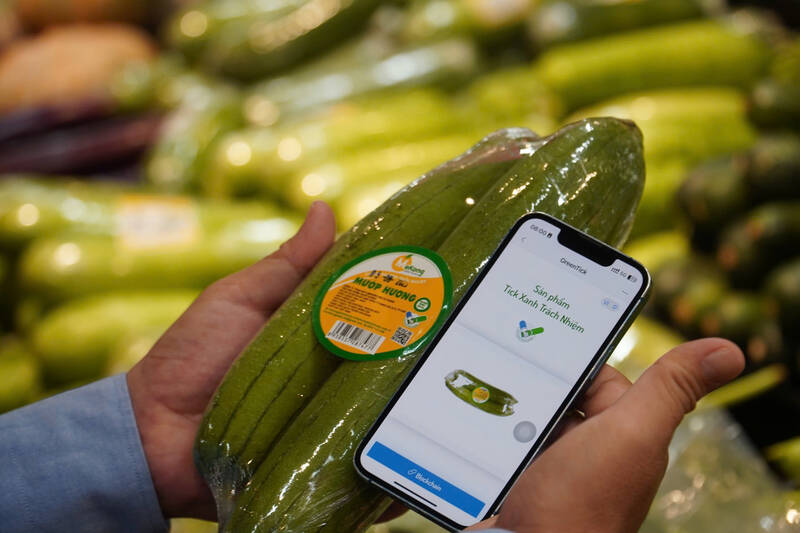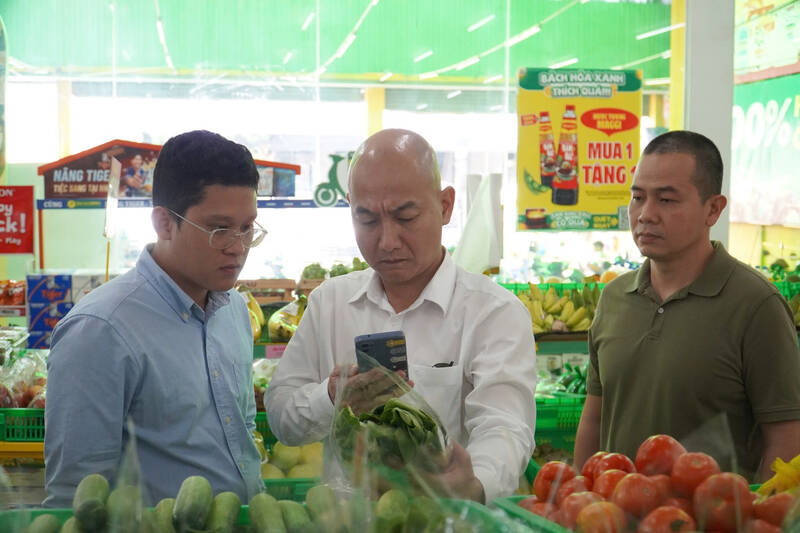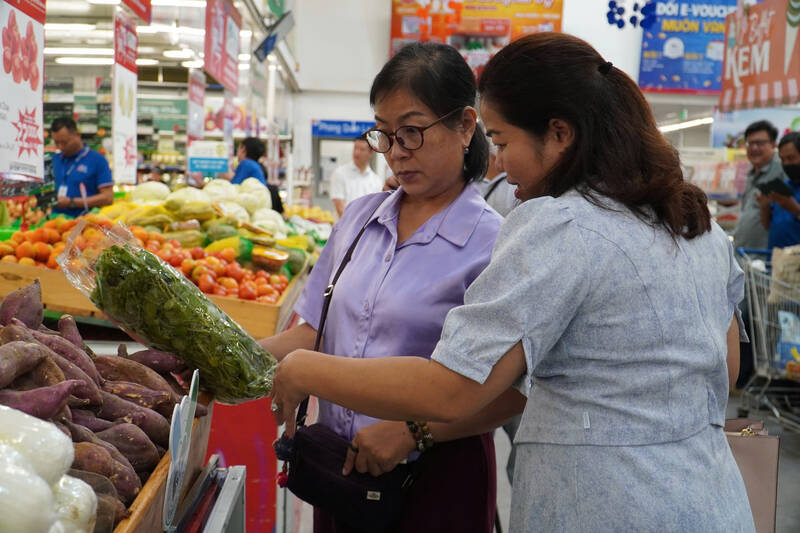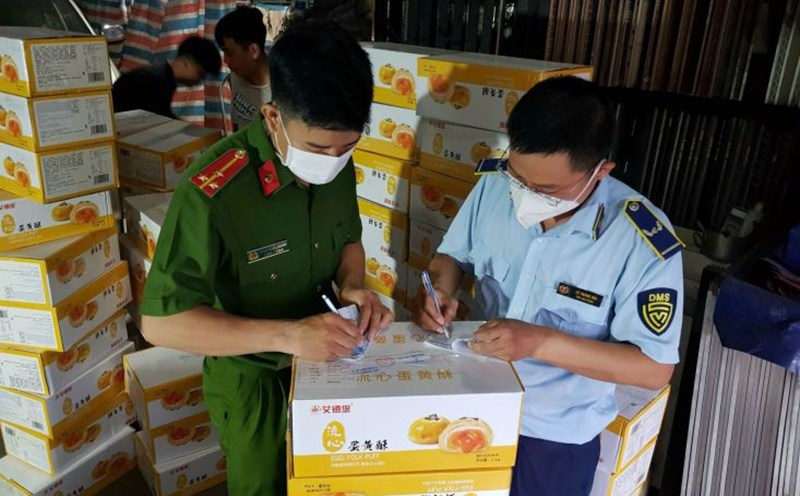Green tick products increase sales
According to Lao Dong, at Co.op mart Thang Loi supermarket, MM Mega Market Hiep Phu, Bach Hoa Xanh store... the area for selling green tick products is displayed in a separate area, making it easy for consumers to see and choose.
According to Ms. Vo Thi Bich Thuy - Acting Manager of the high-end goods industry, Saigon Co.op sales department, as of July, the system had 99 suppliers participating in the "Responsible Green Pick" program, with more than 2,000 products. Of which, Saigon Co.op has reviewed and approved more than 1,500 products that are eligible for green tick labeling.
Through the implementation process, Saigon Co.op has recognized clear consumer interest in products with the responsible green Tick label. Sales of these products in July increased by more than 40% compared to the same period last year. This is considered a positive signal in building awareness and spreading responsible consumption habits to customers" - Ms. Bich Thuy said.

MM Mega Market also said that as of July 31, 47 suppliers had registered to participate in the system. 164 products have been green-ticked. 15145 products supplier has completed posting test results to the system. 25 suppliers have posted green tick logos and QR codes on product packaging at the point of sale.
The number of suppliers and products participating in the program is constantly increasing. Of which, 100% of vegetable products come from the Da Lat area - one of the main growing areas of the system that has been registered and granted a responsible green Tick, accounting for about 75% of the total amount of vegetables being distributed at supermarkets nationwide - Ms. Huynh Thi Phuong Van - Head of Marketing Department of MM Mega Market informed.

Increase consumer confidence
Through the survey and inspection, the Department of Industry and Trade delegation highly appreciated the role of distributors, and at the same time acknowledged that businesses proactively implementing "Responsible green ticket" is an effective way to control and ensure the quality of goods.
According to Mr. Dao Ha Trung - Chairman of the Ho Chi Minh City High-Tech Association, a unit accompanying the Department of Industry and Trade, a bright spot worth noting is that the current program does not only stop at safety control, but also extends to quality supervision with the active participation of the Department of Industry and Trade. This brings clear benefits to both distributors and suppliers, especially transparent and reputable businesses.
When a product is certified by many distributors, it is not only a guarantee of quality, but also a "honorable passport" to help elevate the brand of genuine suppliers.

According to the Department of Industry and Trade of Ho Chi Minh City, the initial implementation progress is still very slow, however, the speed has been significantly improved, especially in some distribution systems. Through the review, the Department of Industry and Trade of Ho Chi Minh City found that there are still some bottlenecks and limitations that need to be promptly overcome so that the program can spread more widely and faster.
Among the 12 participating distribution systems, there have been units that have made strong breakthroughs with a large number of green tick products, while some other systems are still quite limited.
"This survey will go in depth in inspecting and controlling the quality of goods. If the program was previously only at the level of encouragement and persuasion, now there needs to be a step to evaluate, eliminate units that have not met the requirements and honor units that do well" - Mr. Nguyen Nguyen Phuong - Deputy Director of the Department of Industry and Trade of Ho Chi Minh City said.
The Goods Quality Control Cooperation Program - shortened as "Responsible Green ticket" was launched by Ho Chi Minh City in March 2024.
Participating in the program, retailers cooperated, committed to taking action, and prevented poor quality products; linking to form a comprehensive quality control system.
Suppliers voluntarily submit to quality supervision, voluntarily prevent defective products from reaching consumers.











